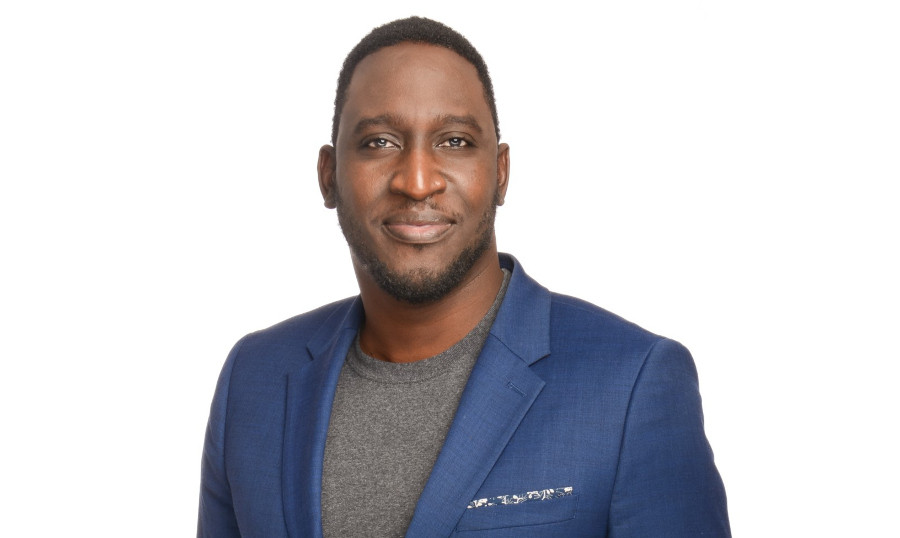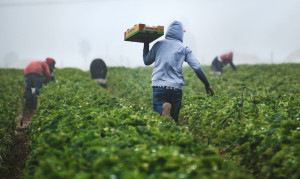Nature Canada is an environmental charity with a network of over 1,000 nature groups and has been around for more than 80 years. Nature Canada, in partnership with Parks Canada, launched a national employment program called Work to Grow. This national program is connecting Black, Indigenous, and racialized Canadian youth between the ages of 15 to 30 to jobs that promote and protect nature. The program runs from June 2021 to March 2022 and is funded by Parks Canada.
Racism seems to be everywhere these days. There is a clear connection between environmental problems and historically marginalized communities. Canada’s nature sector is taking ownership of this problem and taking a step in the right direction.
Nature Canada’s media release on August 13, 2021, confirms the above, “Based on the lived, generational experiences of Canadian Black, Indigenous and other racialized youth, there is a pressing need for organizations to ensure that racialized youth see roles in the sector as viable opportunities for themselves and that the space reflects meaningful employment options for everyone.”
The Honourable Jonathan Wilkinson, Minister of Environment and Climate Change, and Minister responsible for Parks Canada said, “The Government of Canada is taking action to mentor a diverse cohort of future leaders who will soon contribute to the efforts to restore healthy ecosystems, promote conservation, and address the impacts of climate change.”
In 2020, Nature Canada contracted two researchers from the University of Toronto to provide recommendations on making urban nature more accessible to racialized people. The research paper is titled Race and Nature in the City Final Report (Scott and Tenneti, 2021).
It focuses on racialized people from Toronto-based communities and incorporates their feedback to make a report. The report made 22 recommendations. One recommendation mentioned the importance of more representation in nature groups to encourage young people of colour to join.
“This one is important. Work to Grow could encourage nature groups to hire young people of colour and indigenous by providing them with subsidies,” says Emily McMillan, Deputy Executive Director at Nature Canada, while discussing how the Work to Grow program started.
In addition to providing 50% wage subsidies for groups to hire young people, Nature Canada is also raising awareness and generating a conversation around the need for more anti-racism work within the movement.
“It's not good enough to merely solve environmental problems; they go hand in hand with social justice and you have to address them both,” states McMillan.
Work to Grow provides employment opportunities to over 275 youth. Young people aged between 15 to 30, who are legally entitled to work in Canada and identify themselves as Black, Indigenous, or a Person of Colour are welcome to the program. The baseline for the pay starts at $17.50/hour and flexibilities depend on the partner’s situation and their location.
“Right now, we have over 200 positions that have been applied for and candidates are in various stages of the process. We created actual jobs for almost 100 people right now. The process is still going and there is still more room to apply,” says McMillan.
“The jobs vary from office work for an advocacy group to young people out on the field learning about traditional land protection. Some of them are watershed restoration groups. There are some hiking groups and an educational group. There is quite a variety,” she explains.
As part of the program, participants are provided training in different areas including career development, career planning, resume writing, interviewing, and networking.
“All our trainers are Black, Indigenous and racialized leaders in nature roles. They often share their own experiences with the corporate world as a young racialized person. They get a chance to connect with each other and talk about their experiences. We hope this will create a positive impact,” says McMillan.
Naolo Charles is the founder of the Black Environmental Initiative, an organization based in Toronto that is dedicated to environmental engagement and protection of Black and Brown communities. Charles also co-founded the Canadian Coalition for Environmental and Climate Justice. “The way that we experience anti-black racism in the environmental sector is often exclusion,” says Charles. He believes that the environmental sector has a diversity problem.
Black Environmental Initiative is one of the partners of Nature Canada. “Nature Canada has been helpful in our work. I was impressed by their initiative. Their focus was on less talk and more action. They helped us hire three Black interns with a paid internship,” Charles explains his appreciation to Nature Canada and its Work to Grow Program.
Charles also partnered with Nature Canada to develop anti-racism training for Work to Grow participants. He appreciates the efforts of Nature Canada as they try to promote anti-racism in the environmental sector.
Charles further explained that some of the interns have recently graduated and have never had a professional opportunity in their lives. The program provided them with a professional environment to give them an early start in life.
Charles recalls that it took him four years after graduation to get a professional job. This is why he is very committed and happy to create this opportunity for young people in his community so they won’t have to wait as long as he did.
“These kids deserve an opportunity to make successful careers. When people have successful careers, they can have successful lives because there's nothing more stressful than being jobless and having responsibilities,” says Charles as he explains the importance of a successful career to young people.
Charles also said, “If you're a young Black person and care about the environment, I strongly recommend that you follow the initiative and support our work because we want you to work in this field.”
Tyjana Connolly is a Black Canadian student doing her co-op at the Canadian Coalition for Environmental Climate Justice. Her co-op is subsidized by the Work to Grow Program. She is graduating in Political Science from the University of Calgary. As part of her BA, she studied indigenous politics, sustainable development, and the politics of development.
Connolly is very grateful for the opportunity because it is directly related to her field - environmental action and environmental racism. In addition to co-op, she was able to attend the 26th United Nations Climate Change conference, held in Glasgow, Scotland, United Kingdom, from 31 October to 13 November 2021, with all expenses fully covered. The experience would provide her with an opportunity to learn from the conference, meet new people, and advance her career.
“It is a golden opportunity because the conference is very exclusive and if you're not a part of a big organization or you're not a part of the majority, then you're at a disadvantage,” explains Connolly.
Connolly adds that having Black faces in these spaces helps people understand that these issues are important to the Black community.
Connolly believes this is the biggest benefit of the program because people of colour struggle to get a spot on such platforms. This allows people like her to advocate for Black Canadians.
“Not having to worry about the cost of transportation, food, or hotel played an important role in me being able to attend this platform. Besides, the internship gave me an opportunity to participate in a conference that could play an important role in my career. So, I really appreciate that aspect of this internship,” Connolly comments.
She believes that the co-op paves her way for her future. Connolly has developed a strong interest in environmentalism and would prefer to work with an environmental non-profit. She plans on pursuing her master’s degree in public policy with a focus on environmental activism, environmental sustainability, or related areas.
The program is available in all provinces and territories. The feedback has been positive so far.
“Work to Grow has been a fascinating journey for us. People are letting us know that it's been a great experience. They enjoy our workshops and appreciate the fact that they can afford to hire someone,” says McMillan.
Nature Canada expresses gratitude to its partner, Parks Canada, all of the partner groups, and the youth who have participated.
“This is a mutually beneficial arrangement for the young person who gets employment and the organization because it can grow. I feel that we are all learning and growing together,” she says.
McMillan adds that Nature Canada is very committed to this work and will try to implement the various recommendations put forth in the “Race and Nature in the City Final Report”. They will also continue their journey towards anti-racism. She believes that every person in the non-profit space has an obligation to end racism.
“Don’t be afraid to start your journey towards anti-racism even if it feels overwhelming. Take the first few steps, educate yourself, reach out to other partners who are also on that journey. Together we can achieve much through collaboration,” she advises.
Work to Grow is an ongoing process and nature groups can apply for as much funding as they think they will need.
Potential partner organizations are required to provide mentorship and support to the youth, while also having the financial resources to pay the remaining wage cost, among other requirements. Any group can apply to the Work to Grow Program as long as they can meet the above requirements.
McMillan encourages more nature groups to engage in the program. She also encourages young people of colour to apply: “Young people can go to our website and get on the email list. They can also search for opportunities using our jobs board where we have a list of positions that are currently available with organizations that submit their job to us. There are both full-time and part-time jobs.”

 By
By 








